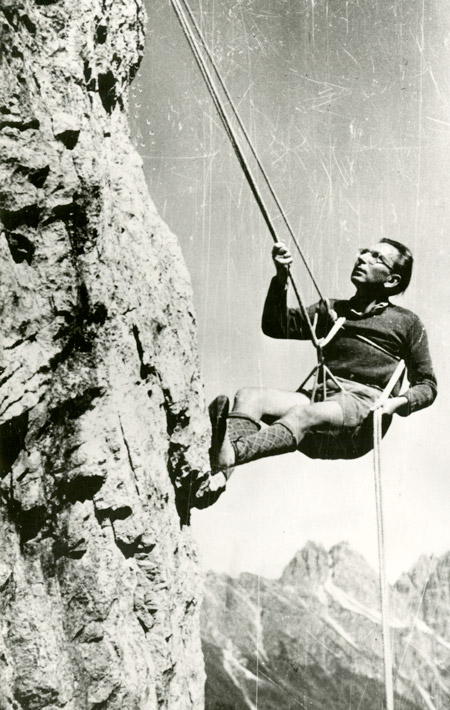
The pathbreaking 20th century psychiatrist Viktor Frankl scaled many heights in his prolific career. A collection at Graduate Theological Union in California honors his legacy.
In February, U.S. Surgeon General Vivek Murthy spoke to the Senate Finance Committee about the “millions of young Americans who are struggling under a mental health epidemic.” The scale of this crisis may be unprecedented for the United States, but other times and places have faced similar challenges. In Recollections: An Autobiography, Viktor Frankl described how, around 1930, he’d begun hearing from many young patients about feelings of meaninglessness. His work with youth counseling centers quickly paid off: the first year of operation was “the first in many years when no student suicides were reported in Vienna.”
This story is just one small slice of Frankl’s extraordinary life. As a Jewish person in Vienna during World War II, he was imprisoned at four concentration camps; while he survived, his wife and parents did not. After the war he returned to Vienna, and embarked on a distinguished career in neurology and psychiatry.
In 1961, Robert C. Leslie traveled to Austria to study with Frankl. A Methodist minister and professor of pastoral psychology at Pacific School of Religion, Leslie became Frankl’s collaborator; Leslie assisted in revising Frankl’s From Death Camp to Existentialism and Man’s Search for Meaning: An Introduction to Logotherapy (1962), Frankl’s most famous publication.
Leslie collected Frankl-related materials for years, and in 1975 GTU established the Frankl Library and Memorabilia, the first Frankl archive anywhere.
Leslie served as curator of the collection until 1995, along with several others from Berkeley, strengthening Frankl’s bond to to the area. At a 1977 event celebrating the collection’s inauguration, Frankl explained why the materials should be at GTU rather than in Austria: “There is no other place where I felt so much understood – so deeply understood – as right here.”
This year marks the 25th anniversary of Frankl’s death. As the pandemic continues to wreak havoc on the physical and mental health of many, and as leaders look for solutions, may Frankl’s insights be a blessing for a new generation seeking solace – and courage.